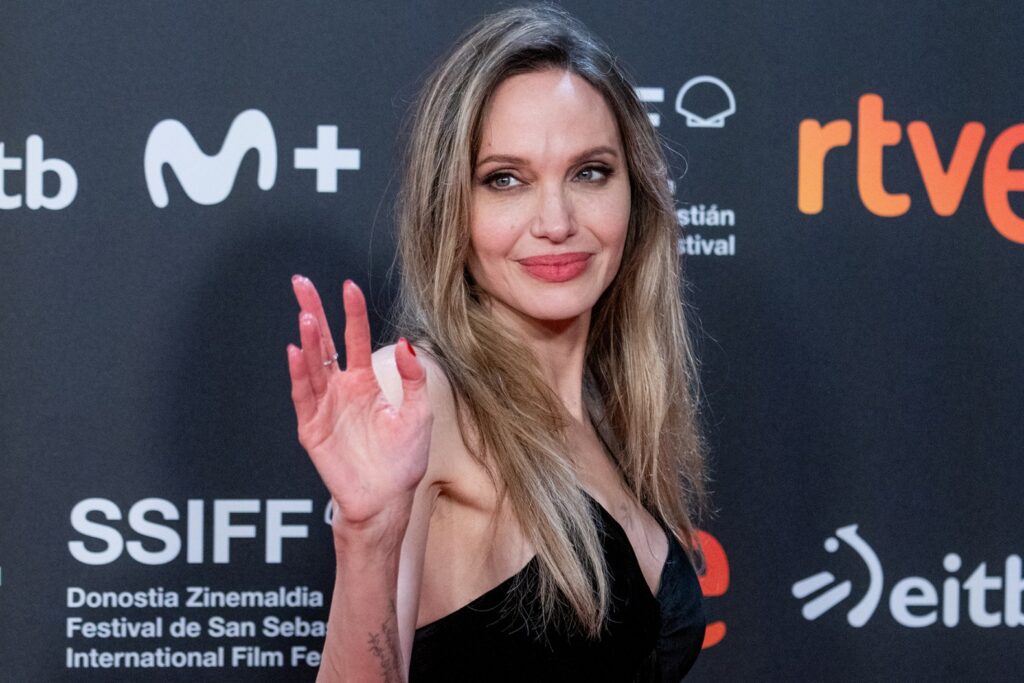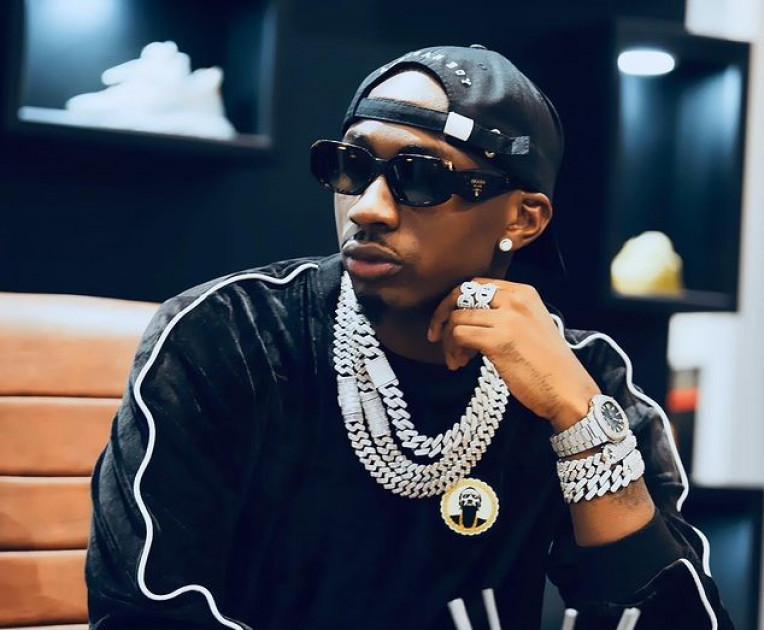Angelina Jolie used the stage of the San Sebastián Film Festival in Spain on Sunday, September 21, to deliver a sobering reflection on the state of her home country and to present her latest film, Couture. The 50-year-old actress and humanitarian said she no longer “recognizes” the United States, warning of the dangers posed by growing restrictions on personal freedoms and free expression.
When asked what she feared most as both an artist and an American, Jolie responded with candor. “It’s obviously a very difficult question. Only to say, I love my country, but I don’t at this time recognize my country,” she said. The remark drew a mix of laughter and surprise from journalists gathered at the press conference.
Jolie explained that her worldview had always been international in scope, shaped by her travels, friendships, and humanitarian work. “I’ve always lived internationally, my family is international, my friends, my life. My worldview is equal, united, international, so anything anywhere that divides or, of course, limits personal expressions and freedoms from anyone, I think, is very dangerous,” she continued. “These are very, very heavy times we are living in together.”
Her comments came at a tense moment in U.S. politics, just days after ABC and Disney suspended Jimmy Kimmel Live! indefinitely. The decision followed jokes host Jimmy Kimmel made about President Donald Trump’s handling of the fatal shooting of conservative activist Charlie Kirk. The move drew criticism across Hollywood, with labor unions and late-night colleagues warning of censorship. The controversy escalated further after Federal Communications Commission Chairman Brendan Carr made remarks interpreted as threatening to media companies, while Trump, 79, claimed that networks airing “wholly bad publicity” about him were “not allowed to do that.”
While Jolie did not reference Kimmel by name, her comments reflected growing unease among artists about political pressure on speech and the media. “Anything that limits personal expression from anyone is very dangerous,” she repeated firmly.

At the festival, Jolie was also promoting Couture, directed by French filmmaker Alice Winocour, which is competing for the Golden Shell, the festival’s highest honor. In the film, she plays Maxine Walker, an American director navigating divorce and illness while immersed in the whirlwind of Paris Fashion Week and falling in love with a colleague, portrayed by French actor Louis Garrel.
Jolie admitted the role resonated deeply with her personal life. Having undergone a preventive double mastectomy in 2013, followed by the removal of her ovaries and fallopian tubes due to a heightened genetic risk of cancer, she drew parallels between her character’s struggles and her own. Both her mother and grandmother died of cancer, and Jolie said the subject remains close to her heart.
Visibly moved during the press conference, she said, “I wish my mother was able to speak more as openly as I have been, and have people respond as graciously as you have, and not feel as alone. There’s something very particular to women’s cancers, because obviously it affects us, you know, how we feel as women.”
The actress has long balanced her Hollywood career with humanitarian commitments. Between 2001 and 2022, she held multiple positions with the United Nations refugee agency, and she continues to speak out on issues ranging from global displacement to famine. On World Refugee Day this June, she warned that the world faces the highest number of displaced people in history, and just weeks ago she issued a statement on the deepening humanitarian crisis in Gaza.
Jolie also spoke earlier this year about her plans to leave Los Angeles once her six children are grown. “When you have a big family, you want them to have privacy, peace, safety,” she told The Hollywood Reporter in January. She added that Cambodia, where she adopted her son Maddox in 2002, will be one of the places she spends significant time after relocating abroad.
At San Sebastián, however, her message was clear: these are turbulent times for artists and citizens alike. Though her words were cautious, Jolie insisted that protecting free expression is vital for the health of any society. “Like all of you and everyone watching,” she said, “these are very, very heavy times we are living in together.”
Sources




